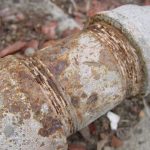Whenever we carry out a remodeling project or carry out repairs on our homes, we quite often hear that our work must be up to code. This term is used in many different building professions, and plumbing is no different. Many people believe that plumbing codes are simply an arbitrary set of rules to keep bureaucrats happy, but this is a fallacy. It is in fact vitally important that plumbing codes are followed carefully to ensure that the work is of a good quality and that your family stays SAFE and HEALTHY.
A Set of Rules in Constant Development
Wherever you live in the country, you will be subjected to a set of rules. Within the building trades, there are laws and statutes that will specify what you can and cannot do. These rules are commonly referred to as building codes, and every state has its own version of these. These building codes are not static, and they evolve over time. This may seem like a strange concept at first, but one must understand that the development of new building techniques, innovations, and processes, necessitates a dynamic set of rules.
Plumbing Codes in Focus
All professionals working in the plumbing trade, must be aware of the local plumbing codes and adhere to them in practice. If the plumber is working in public buildings, they must also be aware of the Americans with Disabilities Act (ADA). There are of course provisions for how work should be carried out with regards to quality and standards. As useful as it is to have a standard for professional plumbers, the greater need for a plumbing code stems from a need to maintain health and wellbeing.
The Health Effects of Poor Quality Plumbing
Many people don’t realize that there are serious health consequences involved with poor quality plumbing. We all understand that we need to drink clean water, but there are other less known areas to consider regarding our plumbing needs. One of the key elements that are little understood is the movement of wastewater and sewage in our homes. The pitching of drainpipes is vital to ensure that noxious fumes are not present and that hazardous water is not resting in plumbing fixtures. Waterborne diseases and foreign materials can be held at bay by installing a water filtration system, but an incorrectly installed system can be compromised. Advances in plumbing materials and techniques have introduced many effective ways to improve the health benefits of our plumbing systems.
Professional plumbers that adhere to plumbing codes will be up to date with all the latest innovations and best practices.
Protection From Bad Plumbing Practices
Many of the provisions in local plumbing codes are designed to protect the homeowner from the effects of bad plumbing. One key example is the use of underground soldered joints, which are used by unethical plumbing contractors. The use of underground soldered joints is used by amateurs because it is fast and cheap. These savings are not passed on to the homeowner, which means that you get a similar bill for poor quality work. Plumbing codes prohibit this practice, if there were no code enforcement, more unethical plumbing contractors would be tempted to use this technique to increase their profit margins.
By Giovanni Longo President Flood Brothers Plumbing
Giovanni Longo is a 3rd generation master plumber who has been practicing his craft and trade in the greater Los Angeles area for well over a decade and a half. A plumbing and hydraulics-engineering innovator, Giovanni’s particular world-class expertise focuses on dealing with challenging sewer system designs as well as resolving complex commercial and residential draining issues. As a certified Flood Mitigation expert, he is also well versed in a wide variety of water damage and remediation solutions.





